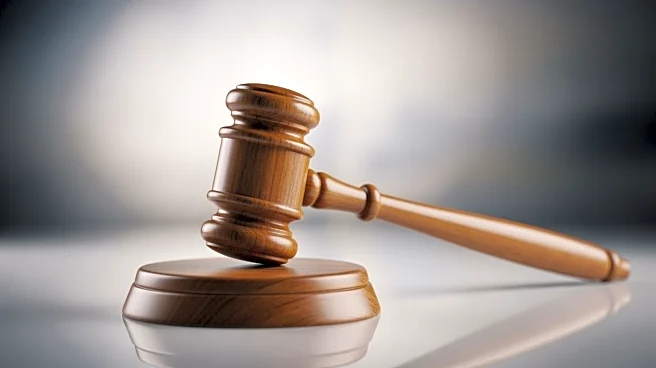What's Happening?
Senate Majority Leader John Thune has indicated that Paul Ingrassia, President Trump's nominee for the Office of Special Counsel, is unlikely to be confirmed. Ingrassia faces opposition from several Senate Republicans, including Sen. Rick Scott and Sen. Thom
Tillis, due to controversial comments and allegations of misconduct. Ingrassia's confirmation hearing is scheduled for Thursday, but his nomination has been met with skepticism from key GOP senators. The Office of Special Counsel is responsible for protecting federal employees from prohibited personnel practices, and Ingrassia's nomination has raised concerns about his qualifications and past statements.
Why It's Important?
The potential rejection of Ingrassia's nomination represents a rare instance of Senate Republicans opposing a Trump nominee, highlighting internal divisions within the party. The controversy surrounding Ingrassia's comments and alleged misconduct underscores the importance of vetting candidates for key government positions. The situation reflects broader challenges in the nomination process, where political considerations and candidate qualifications must be balanced. The outcome of Ingrassia's nomination could impact the functioning of the Office of Special Counsel and its role in safeguarding federal employees.
What's Next?
The confirmation hearing for Ingrassia is set to take place, but his chances of securing approval appear slim. The White House may need to reconsider the nomination in light of the opposition from Senate Republicans. The situation may lead to further scrutiny of Ingrassia's past statements and actions, potentially influencing the decision-making process. The outcome of the hearing could prompt discussions about the criteria for government appointments and the role of political affiliations in the confirmation process.
Beyond the Headlines
The controversy surrounding Ingrassia's nomination raises questions about the ethical standards for government officials and the impact of personal conduct on public service. The allegations against Ingrassia highlight the challenges of ensuring accountability and integrity in government positions. The situation also reflects broader societal debates about the influence of political ideology on public service and the importance of maintaining impartiality in government roles. The implications of the nomination process may continue to be a topic of discussion, as stakeholders consider the balance between political loyalty and professional qualifications.















